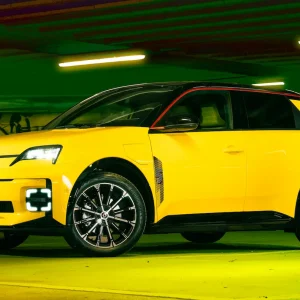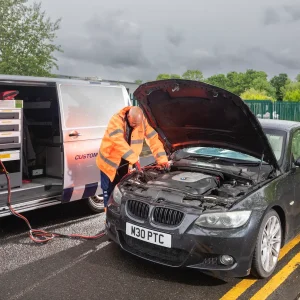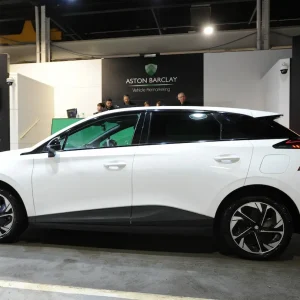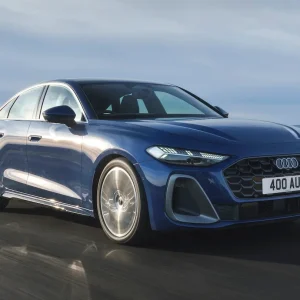With the election around the corner and the main parties taking part in televised debates, BusinessCar has staged its own political three-way discussion and asked the key players what their priorities are for road and transport policy for the future. Rachel Burgess reports
What are your plans for company car and vehicle taxation?
Lord Adonis, secretary of state for transport, Labour: Our plan for company car tax is to reward people choosing cleaner, more efficient cars. We are committed to making all cars and vans emitting zero-CO2 fully exempt from car tax for five years. And to make low-carbon cars subject to a new low 5% rate of company car tax.
Theresa Villiers, shadow secretary of state for transport, Conservatives: The massive increase in the complexity of the tax system under Gordon Brown has added significant costs for business. An important priority for us is a simpler and more efficient tax system. This would provide the starting point for our approach to company car and vehicle taxation. We would also seek to ensure our approach to tax in this area complements our commitment to tackling climate change and reduce emissions from transport. Of all of Labour’s tax rises, our priority has always been to stop the jobs tax they want to inflict on ordinary families – their NICs increase.
Norman Baker, shadow secretary of state for transport, Liberal Democrats: Companies should be encouraged to purchase clean cars whenever possible, and we believe the Government is right to base company car tax on emissions. The decision to allow a five-year exemption from company car tax for zero-carbon vehicles is also welcome. We will follow a similar approach, but we do believe that these taxes should be more steeply graduated and that a larger number of relatively energy-efficient cars should be included.
For example, the Government announced in the Budget that new tax breaks will be made available for cars which emit between 1 and 75g/km of CO2. The only problem is that there are no cars on the market that meet those criteria.
We also believe that it is wrong for taxation to be based on ownership, which is not harmful in itself. Instead, we believe taxation should be based on pollution, which is harmful, and it is for that reason that we will abolish VED when road pricing is introduced.
Will your party seek to advance the case of national or local road charging during the next term?
L: Labour has ruled out the introduction of national road pricing within the next Parliament. Whether a local authority wishes to develop a local scheme or not will remain a matter for them.
C: No. We oppose plans for national ‘spy-in-the sky’ road pricing. If there is genuine community support for local charging schemes we will not seek to over-rule the local decision to go ahead with such a scheme. However, we will scrap the rules Labour has used to try to bully local councils by ring-fencing crucial funding only for those areas prepared to introduce charging.
LD: Yes. Introducing a nationwide system of road pricing, based on distance travelled and emissions, forms a key part of our vision for transport. Our plans encompass two distinct elements, which will be introduced at the same time: one for the average motorist and another for lorries and HGVs. Under our proposals, road user pricing will operate on motorways and dual carriageways. Crucially, the average motorist will be no worse off under these plans, unlike the charges on tolls and bridges, which currently operate across the country. All monies gained from motorists will be returned back to them: in exchange for a charge on motorways and dual carriageways, we will significantly reduce fuel duty and abolish VED entirely.
We believe local road charging systems may have a role to play in reducing congestion, but that it should be up to local councils to determine whether such schemes are appropriate for their area. We believe that when national road pricing is introduced, any appetite for these schemes will be greatly diminished.
Where does your party stand on the implementation of workplace parking on a local or national scale?
L: Workplace parking schemes are one of a range of measures available to local authorities for improving local transport and tackling congestion. It is for local authorities to decide whether to develop a scheme or not.
C: We would not introduce a national workplace parking levy. No Conservative council has plans to introduce a WPL at a local level.
LD: We have no plans to introduce a workplace parking levy on a national level because, generally, we believe it is up to local authorities to determine how congestion can most effectively be reduced in their areas. Having said that, we have reservations about the implementation of WPLs, even in local areas. We are concerned that they will have a detrimental impact upon businesses and believe there are more effective ways to reduce congestion, such as national road user charging, and better public transport.
How would the electric vehicle subsidy be implemented?
L: Labour is supporting the UK’s leading position in the development of low-carbon vehicles with a £400 million fund to provide consumer subsidies of up to £5000 for the purchase of low-carbon cars (those with emissions from 1-75g of CO2/km) and the necessary infrastructure to run them. If Labour is elected, from next January eligible cars will receive a grant of 25% of the list price up to a maximum of £5000. Dealerships will deduct the 25% at point of sale – similar to the way in which the scrappage scheme works.
C: We will introduce incentives for electricity network operators to establish a new national recharging network, to enable drivers to move more easily and more quickly to electric and plug-in hybrid vehicles.
LD: It is welcome the Government has introduced a subsidy for the purchase of electric vehicles from next year, but it is far less welcome that just two cars have so far been produced that meet the criteria for this scheme, and that one of them, the Tesla Roadstar, costs a staggering £87,000.
The key point is to make electric cars accessible to a wide range of people. We can do that partly by reducing the cost of cleaner vehicles, and so subsidies for electric vehicles are welcome in theory. The Lib Dems will introduce more steeply graduated taxes on vehicles. In this way, the cleanest cars will receive the most subsidy. As emissions increase, the rate of tax will gradually increase, allowing a greater number of vehicles to benefit and more closely reflecting the real carbon impact of different vehicles.
We should also not lose sight of the potential of hybrid vehicles. We must also provide a proper infrastructure for these vehicles.
What is your party’s view on road building to ease traffic problems?
L: Labour’s roads policy is focused on making best use of existing capacity and on targeted infrastructure enhancements. The recent trial of hard-shoulder running at peak times on the M42 has delivered sizeable capacity and reliability benefits. The £6bn roads programme is rolling this approach out much more widely, alongside targeted motorway widening projects including between junctions 16-23 and 27-30 of the M25 and investment in regional A-roads.
C: It will be our aim to tackle the worst bottlenecks. In some cases that can be done by making better use of the road space we have, in others, it may ultimately require new capacity, for example with dualling schemes or new roads or bypasses. However, we will only embark on projects where doing so can be reconciled with a responsible approach to the public finances.
LD: All the evidence suggests that if you create more space on the roads, it will simply be filled by journeys that would otherwise not have been made. We believe investment in roads should therefore be concentrated on improving safety rather than trying to tackle congestion. We believe our plans for a revenue-neutral road pricing scheme on motorways and dual carriageways, coupled with improvements to public transport that will provide a viable alternative for many journeys, provide the best way forward.
How else would you ease the burden on business caused by congestion?
L: Far too much disruption is caused by local road works, so we will increase tenfold the penalties on utilities who allow work to overrun. The Budget also announced a new £100m pothole fund to help local councils repair the damage to our roads caused by the winter weather.
C: We will expose decisions on traffic lights to much greater transparency and democratic scrutiny. Traffic lights have soared in number and been used deliberately to cause congestion. For example, thanks to Labour’s Ken Livingstone, the number of traffic lights has increased in London by 42% in the last nine years – from 4236 in 2000 to 6036 in 2009. We will also work with the police and Highways Agency workers to try to speed up collision clear-up times, which seem to have caused so much disruption and economic damage in recent years.
Furthermore, a Conservative government is committed to building a high-speed rail network that connects the north and south of the country. Lastly, our plans for rolling out superfast broadband will help relieve congestion by providing an alternative to many business journeys, which are unavoidable today.
LD: We can make it easier for businesses to use rail and other modes. Building a high-speed rail network, for example, will both improve journey times for business travellers and free up capacity on the existing network for freight trains.
A lack of integrated thinking where transport is concerned also hurts businesses. We will change this by encouraging the creation of multi-modal interchanges, where goods could be switched from one mode (such as rail or large lorries) into smaller vans. Encouraging the use of multiple modes on a single journey will reduce the impact that congestion has on businesses.
What are your party’s main plans and priorities for road transport over the next four years?
L: Tackling road congestion is a key Labour priority. Labour is also committed to supporting the development of low-carbon vehicles.
C: Action to address the causes of unnecessary driving hassle will be an important priority for the Conservatives if we are the next Government. For example, we would increase the fines utilities firms pay for over-running roadworks and crack down on rogue clampers.
We also believe that Labour’s army of speed cameras is not the best way to make our roads safer. A Conservative government would not fund any new fixed-speed cameras, but will promote a switch to alternative, better ways of improving road safety, such as vehicle-activated signs which have proven effectiveness.
Unlike Labour, our congestion strategy will not be based on efforts to force people to abandon their cars by imposing punitive taxes. We will provide a fresh focus on public transport to make it easier for people to make greener transport choices and leave the car at home more often.
LD: Our two main goals for transport are to improve the travelling experience for everyone and to reduce carbon emissions from transport. Since 1990, every major sector has reduced its carbon emissions, with the exception of transport. Business, for example, has reduced emissions by 16% since 1990.
Given that road transport is responsible for 92% of all emissions, this is a key area from which emissions can potentially be reduced. We want to reduce congestion, and this can be done partly by providing incentives for some journeys to be undertaken by cleaner modes – which we will do through road pricing. We plan to introduce road pricing on large lorries and HGVs, with the income that is not returned to hauliers used to fund projects such as high-speed rail.
We will facilitate the use of cleaner vehicles by introducing steeper rates of banding on the Government’s ‘showroom’ tax. We will also help provide a national network of charging points for electric cars, which will create the necessary infrastructure for cleaner vehicles to thrive.





